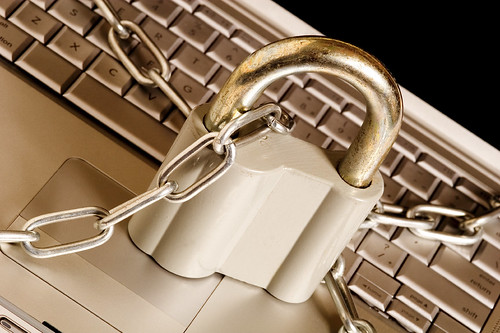This is a guest post! If you want to write for us, check out the Guest Post section.
There are two reasons you need to have the best possible security you can have for your online store: customer confidence and your own peace of mind. By creating a truly secure transaction, you instill an added degree of confidence for your customer, help engender trust, and put him at ease. This benefits you, as well, in that you’ll see higher conversion rates and you’ll be protected from fraudulent transactions and chargebacks.

[Image via Flickr]
There are 5 security measures online stores can use to make transactions as safe as possible:
1. SSL Certificates
While SSL isn’t by any means unique to the transaction processing scenario, it is essential to it. Even customers who aren’t especially savvy know that, unless the online store address starts with “https:”, they aren’t supposed to enter any secure information. Starting with SSL security is a basic requirement of effective online store security.
2. Secure shopping cart software
Online store software should adhere to the PCI standard for shopping carts. This is the minimum level of security that most of the credit card vendors require. Ideally, you’ll choose an online store back end package that provides security that’s enhanced beyond the PCI standard, but that needs to be your starting point.
You can learn more about online security by obtaining your masters degree in information security.
3. Address verification
Address verification services (AVS) is a way for you as the merchant to verify the identity of the person using the credit card. It’s up to you to set up the threshold for error on this one, and what to do when the address doesn’t match up. The credit card companies don’t require this, but you should in order to protect you as well as your customer.
4. Card Verification Value
The CCV or CCV-2 number that’s located on the back side of a credit card is a merchant’s friend when it comes to security. That number isn’t printed on the customer’s statements, and it’s not available online. The only place the consumer can find it is on the back of the credit card. That means when someone puts in that number you know that they’re physically in possession of the card.
5. Transaction security monitoring
There are a number of monitoring services that will check your website’s security for you. This can happen on a weekly, daily, or even hourly basis. The higher volume you have on your site, the more frequently this should be done. This is a third-party service that’s often provided by your web hosting company, and it may include other security monitoring such as verifying the security of your web hosting software installation. Even now, customers are wary of making online purchases. Media stories about identity theft and credit card scams abound. It’s up to you to make sure that your customers have a secure transaction that doesn’t put you or them at risk.
The end result of these kinds of enhanced security measure is twofold. First, there is the obvious security benefit for both you and the customer. On top of that, however, you’ll help your customer to trust you more when they know your transactions are secure. This makes buying easier, and makes it more likely that the customer will come back to you the next time.
Author Bio
David Rodwell is a writer in business and economics, specializing in credit card processing. You can find more of his articles located at CreditCardProcessing.net.
Warning: count(): Parameter must be an array or an object that implements Countable in /home/u265766359/domains/maheshkukreja.com/public_html/wp-content/themes/thesis_189/lib/classes/comments.php on line 43
{ 0 comments… add one now }